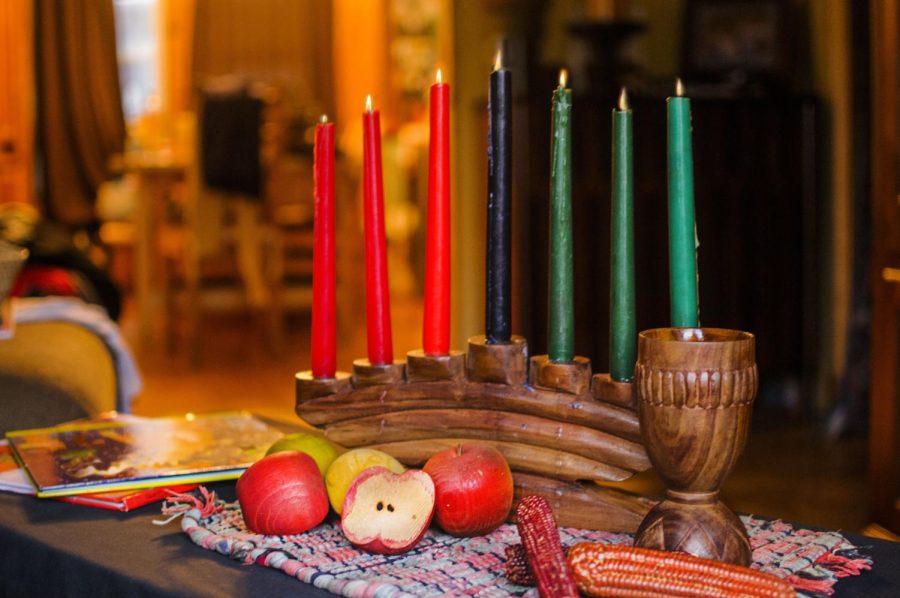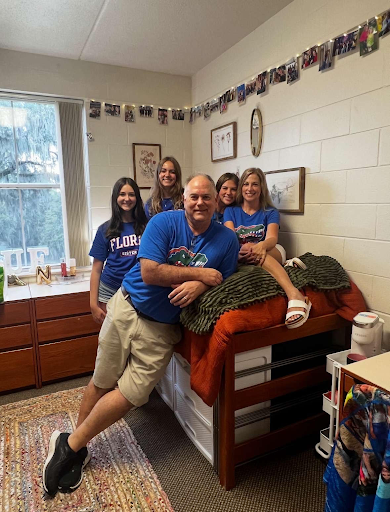Learning a little bit about Kwanzaa
This image was accessed via Google Images under the Creative Commons License
The candles used in Kwanzaa are usually placed inside of a Kinara. Also during Kwanzaa, an African feast called a Karamu is held with traditional foods.
Kwanzaa is a holiday that many people don’t hear about because it receives less media. By learning about Kwanzaa, people can be more aware of new cultures and traditions. Kwanzaa comes from the phrase “matunda ya kwanza” which means “first fruits” in Swahili. People celebrate Kwanzaa with music, dancing, African drums, storytelling, reading of poetry and a large traditional meal. It consists of seven nights where the family gathers and a child lights one of the candles on the Kinara (candleholder).
It is celebrated December 26 through January 1, and toward the end of Kwanzaa, on the thirty-first, an African feast (Karamu) is held.
After the feast, one of the seven principles is discussed: unity (umoja), self-determination (kujichagulia), collective work and responsibility (ujima), cooperative economics (ujamaa), purpose (nia), creativity (kuumba) and faith (imani). These principles are very important to those who celebrate Kwanzaa because the principles help build a sense of community through togetherness.
Along with the seven principles, there are seven symbols in Kwanzaa: crops (Mazao), place mat (Mkeka), ear of corn (Vibunzi), The Seven Candles (Mishumaa Saba), the candleholder (Kinara), The Unity Cup (Kikombe Cha Umoja), and the gifts (Zawadi). These represent anything from fertility to ancestry. More information about these principles can be found at https://www.history.com/topics/holidays/kwanzaa-history.
Handmade gifts are encouraged to promote self-determination, purpose and creativity and to avoid the chaos of shopping and consumption during the December holiday season. Kwanzaa gifts such as candles, quilts, art, beaded jewelry, home decor, Kwanzaa greeting cards, gift card/certificate from a black owned-business, African ornaments, African dolls or Kwanzaa coloring books are great presents for those who celebrate Kwanzaa.
Kwanzaa is very important in many African countries. Learning about Kwanzaa can help people understand more about their culture and way of life.
Addison has been on staff for four years now and loves writing for The Hiller! When not at school, she can be found hanging out with her friends, online...






